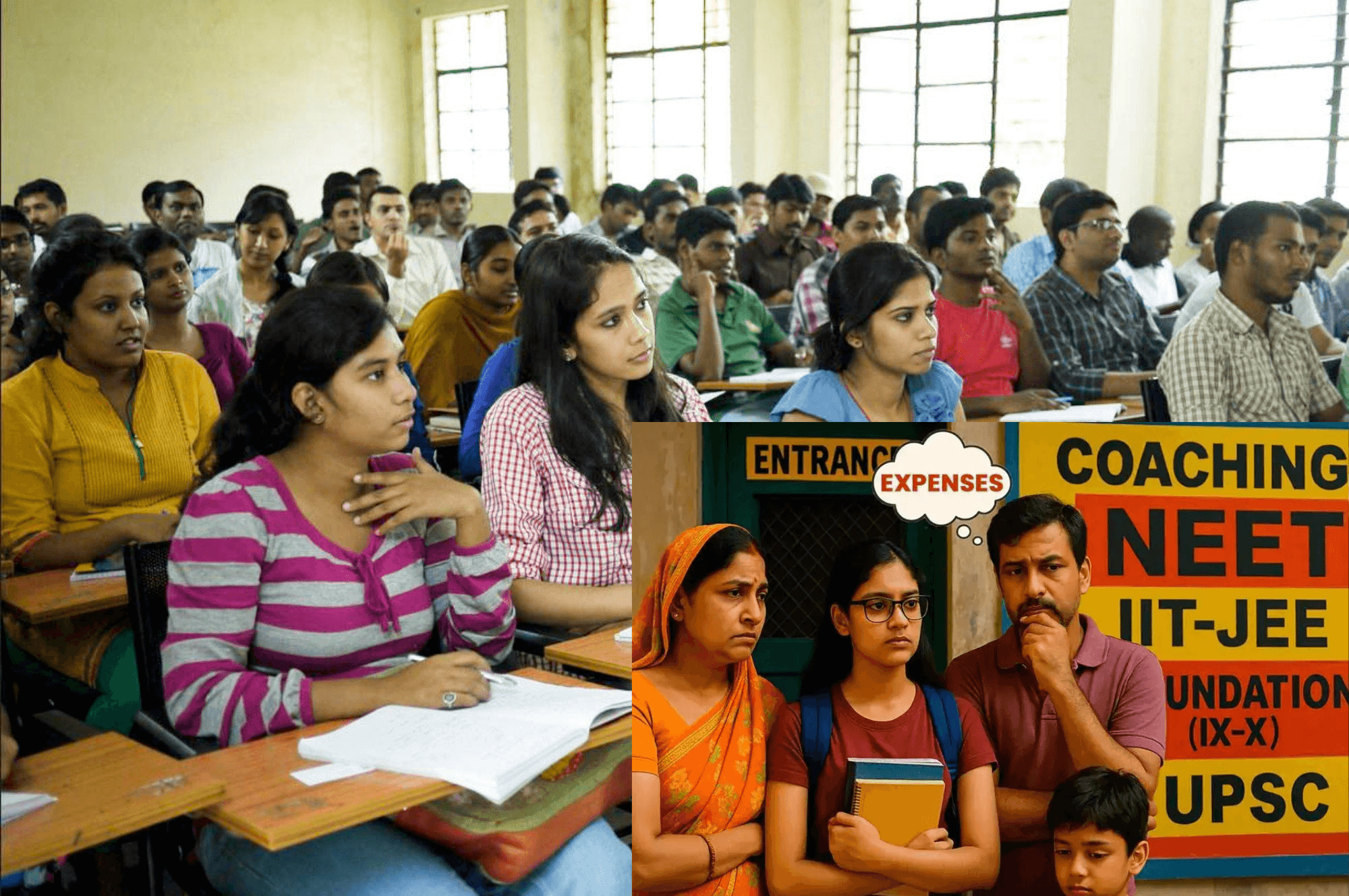18% GST on Private Coaching: Will It Curb India’s Tuition Obsession?
The Indian government has imposed "18% GST on private coaching" classes. Will this move reduce India’s growing tuition culture or increase the financial burden on students and parents? Read in detail.
18% GST on Private Coaching:
India’s education system has long been shaped not just by schools and universities but also by the booming industry of private coaching.
Be it for board exams, IIT-JEE, NEET, UPSC, or even English-speaking courses, coaching institutes have become an unavoidable part of middle-class and aspirational India’s life. With the government now imposing 18% GST on private coaching, a heated debate has begun: Will this move finally control the wave of tuition dependency, or will it place an even heavier financial burden on parents and students?
The Rise of India’s Coaching Culture
In most Indian middle-class households, private tuition has become almost mandatory.
Parents often feel that regular schooling is not enough to ensure high marks or competitive exam success. Institutions in cities like Kota, Delhi, Hyderabad, and Patna have earned global attention for their multi-billion-rupee coaching industries.
According to market estimates, the Indian coaching industry is worth over ₹58,000 crores annually and continues to grow at double-digit rates.
The demand is driven by high-stakes entrance exams, peer pressure, and the belief that coaching is the shortcut to success.
What the GST Ruling Means
Until recently, many coaching centers operated under varying tax structures and loopholes. But with the government’s move to explicitly bring coaching services under 18% GST, the system is expected to become more formal and transparent.
This means:
Coaching centers must add 18% GST to their existing fees.
Students and parents will likely pay higher overall amounts.
Smaller, local tuition teachers may lose out to bigger registered institutes.
For example, if a coaching class charged ₹50,000 annually, the same will now cost ₹59,000 after GST. Such price hikes could affect affordability, especially for middle-income families.
Government’s Perspective
From the government’s point of view, this tax move has two main objectives:
Revenue Generation – With education becoming a lucrative sector, taxing private coaching ensures a fair share of revenue for nation-building.
Curbing the Tuition Obsession – By making coaching more expensive, the government subtly expects families to rethink the over-dependence on coaching and rely more on schools.
The logic is that if tuition becomes less financially attractive, students may focus on holistic learning instead of “rat race” preparation.
The Concerns of Parents and Students
However, critics say this is easier said than done. For lakhs of students aspiring to clear IIT-JEE or NEET, coaching is not a luxury but a necessity.
With intense competition, the majority believe school teaching alone cannot fill the gap.
Parents fear that this 18% GST on private coaching will:
Push coaching out of reach for lower-middle-class families.
Create inequality where only rich students can afford top institutes.
Increase the financial stress on already struggling households.
As one parent in Delhi put it: “We already pay hefty school fees, and now coaching with tax will cost nearly half our family income. But we cannot stop, because the exam pressure is ruthless.”
Impact on Coaching Institutes
Coaching centers themselves are facing a dilemma. Big brands like Allen, Aakash, or FIITJEE may not see much decline since their student base comes from families willing to invest. But smaller local tuition centers may struggle to retain fees while adding 18% GST.
Some may operate informally without registration to avoid taxes, raising compliance concerns.
Others may absorb part of the tax, reducing their profits. Overall, the industry may witness consolidation, with larger institutes swallowing smaller ones.
Will GST Control Tuition Obsession?
The bigger question remains: Will the 18% GST really reduce India’s private tuition addiction?
The answer may not be straightforward:
Yes, for some families, higher pricing could force them to skip coaching or look for cheaper online alternatives.
No, for competitive exams, the demand will continue regardless of fees, because the stakes are extremely high.
Education experts also note that unless schools improve their teaching quality, the dependency on coaching will never go away.
As long as marks and ranks decide careers, coaching classes will remain central.
Possible Outcomes of this Policy
Shift to Online Learning – Online ed-tech platforms may become more attractive as they can offer relatively cheaper courses while still charging GST.
Wider Economic Gap – Students from wealthy backgrounds may continue coaching, while others may be forced to drop out.
Pressure on Schools – Schools may now face calls to provide better academic support since families are questioning double spending.
Rise in Informal Coaching – Tuition without GST compliance may shift underground, making the industry harder to regulate.
Voices of the Education Sector
Education activists argue that education should not be taxed like luxury goods or services.
They insist the government must carve out an exemption for basic coaching that acts as academic support. Some suggest a tiered GST where high-end institutes pay tax, but neighborhood tutors are exempt.
On the other hand, economists counter that coaching is a commercial service and must be taxed like any other industry.
They also argue that excessive coaching has created unhealthy competition and even mental health crises among students. In that sense, discouraging tuition is socially beneficial.
Conclusion
The 18% GST on private coaching has sparked a national debate that touches every Indian household with school-going children.
While the government sees it as a revenue and regulation tool, parents and students see it as another financial strain.
